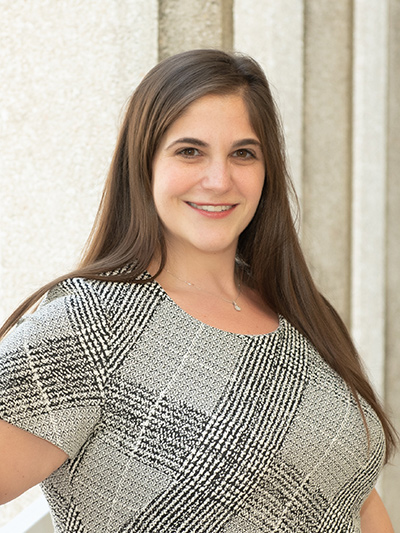Early Career Research Award from the Society for the Study of School Psychology helps Kiperman develop video series promoting LGBTQ+ youth wellness

The Wayne State University College of Education was awarded $20,000 from the Society for the Study of School Psychology to support "P.S.: LGBTQ+ Youth Matter": Evaluating an Affirming Program Promoting LGBTQ+ Youth Wellness. The project is led by Sarah Kiperman, Ph.D., assistant professor of educational psychology.
"P.S.: LGBTQ+ Youth Matter" is a free, online psychoeducational video series Kiperman and her research team, Project Support, co-developed with their LGBTQ+ youth partners. Youth can access the videos in spaces with Wi-Fi where they feel safe. Kiperman said this was important because many LGBTQ+ youth are not out to their families, which often prevents them from accessing mental health services or talking to their family about what it means to be LGBTQ+.
“This project is a culmination of the commitment, passion and hard work of my research team, without whom none of this would have been possible,” said Kiperman. “It is also a testament to the power of partnerships. We collaborated with local LGBTQ+ youth through Affirmations and Michigan Organization of Adolescent Sexual Health to learn what they would want from a therapeutic program developed just for them.”
The series features a Michigan-based LGBTQ+ youth, who discusses what being part of the community means to him, his experience of coming out, and what has been helpful for him to know and learn. Kiperman, a licensed psychologist, nationally certified school psychologist and registered play therapist, and Gabriel DeLong, the Project Support Lab manger and a counseling psychology doctoral student, also appear in the series. They share information and insights that encourage viewers to recognize the importance of prioritizing their mental health and wellness and offer skills training in cognitive reframing, mindfulness, distress tolerance and crisis management.
“The program is based on empirical and evidence-based practices that, when used with integrity, relate to improved mental health outcomes,” said Kiperman. “Every video in the series has a psychoeducation component and offers a cognitive reframe.”
As the project expanded, Kiperman said the team developed relationships with other organizations, including The Cruz Clinic, Bloomfield Hills School District, Therapyology and the Counseling Center of West Michigan. She also acknowledged David Merolla, Ph.D., associate professor and chair of the sociology department, who served as her faculty mentor through Wayne State’s mentoring program.
“He helped me secure this grant,” Kiperman said. “He has been a great resource for me, and his expertise in quantitative research complemented my qualitative focus.”
According to Kiperman, LGBTQ+ youth experience minority stressors and barriers to accessing services. Additional barriers such as homo/transphobia and heterosexism may exist in their homes and further inhibit their ability to have supportive conversations about what it means to be LGBTQ+, how to lead healthy and affirming lives, and what coming out could look like.
“While this series addresses these barriers, it is not meant to replace therapy or mental health services,” said Kiperman. “However, it begins to address the service access gap for LGBTQ+ youth. Not being out to their families and friends, general judgement of therapy or disaffirming providers can greatly impact the ability of LGBTQ+ youth to access affirming services.”
P.S.: LGBTQ+ Youth Matter was developed using the Participatory Culture Specific Intervention Model approach, in which community stakeholders — in this case, LGBTQ+ youth — are partners in developing programs to ensure they reflect the values of the community being served. Kiperman said she is writing a book chapter about social justice in mixed methods research and is excited about piloting this method for this project.
Kiperman will use the Early Career Research Award to help fund a pilot of the video series to obtain feedback from LGBTQ+ youth about its efficacy, acceptability and integrity. She hopes this process will result in a therapeutic tool LGBTQ+ youth between the ages of 14-18 can access through schools and community organizations or on their own and use to make sense of what it means to be LGBTQ+ to them in a validating, affirming and safe context.
“As a research team composed of mental health practitioners and graduate students, we hope to offer our knowledge of evidence-based mental health practices and program development and benefit from the expertise of our community partners as they share their own lived experiences,” said Kiperman. “Marrying these areas of expertise has been exciting and led to the development of a meaningful program. However, it is only meaningful if LGBTQ+ youth endorse it as such. The pilot will help us determine whether we are moving in the right direction.”